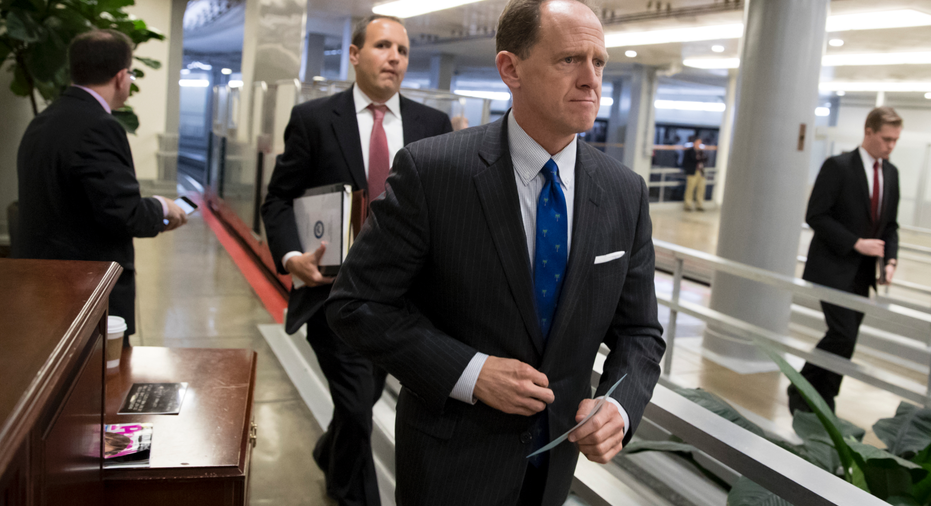Senate GOP backs budget, clears way for tax overhaul

WASHINGTON – Republicans must now shift their focus to enacting President Donald Trump's sweeping tax plan, a far heavier lift than the $4 trillion budget plan they've muscled through the Senate to lay the groundwork for the first tax overhaul in three decades.
The GOP on Thursday narrowly backed the budget plan, a prerequisite to major tax legislation. The Senate methodically worked through a pack of amendments, with Republicans rebuffing Democrats' successive attempts to reshape the blueprint and derail the tax cuts in the Senate. The final vote was 51-49 with deficit hawk Sen. Rand Paul of Kentucky the lone opposing GOP vote.
Republicans will have a far harder time approving a complex plan to bring steep tax cuts, especially for corporations, and overhaul the nation's tax system, which has sharply divided House Republicans on regional fault lines.
Trump, who made revamping the tax system a campaign pledge, told reporters Thursday that the budget "will be phase one of our massive tax cuts and reform."
Enacting a tax overhaul by year's end is a prime goal of Trump and the Republicans, who are looking for accomplishments following an embarrassing drought of legislative achievements and the collapse of several Obamacare repeal attempts. Republican lawmakers publicly admit that failure on taxes would be politically devastating with control of the House and Senate at stake in next year's midterm elections.
"It would be a complete disaster," Sen. Lindsey Graham, R-S.C., said after the final budget vote.
The budget blueprint, using Congress' twisty rules, greases the wheels for the tax package by enabling the Senate Republicans to catapult it through without fear of a filibuster — a delaying tactic meant to kill legislation — by Democrats.
But the Republicans are split. A restive rump of House Republicans from high-tax states like New York, New Jersey, Illinois and California staunchly oppose the tax plan's proposed elimination of the federal deduction for state and local taxes. They maintain it would hurt low- to mid-income



















